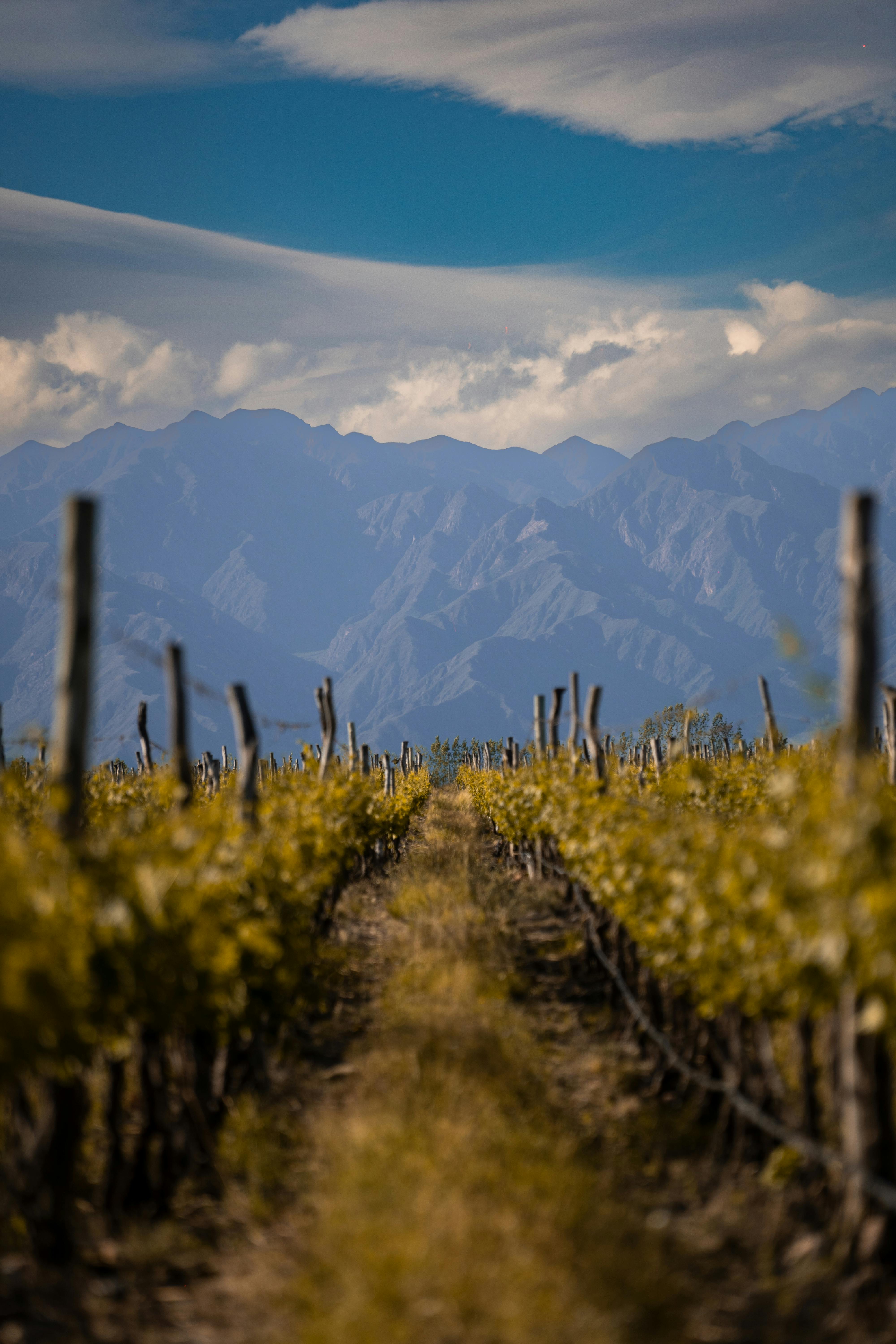Living in regions prone to agricultural runoff can pose a concern for the safety of your well water. The interaction between pesticides, fertilizers, and other contaminants used in agriculture can have detrimental effects on your water quality. But fear not, there are measures you can take to ensure the safety of your well water. This article will provide you with practical tips and actionable steps to protect your well water from the potential risks associated with agricultural runoff, so you can enjoy clean and safe drinking water for you and your loved ones.

Testing Well Water
Determine the Source of Well Water
To ensure the safety of your well water in regions prone to agricultural runoff, it is important to first determine the source of your well water. Understanding where your well water comes from can help identify potential contamination sources such as nearby agricultural activities or livestock farms. By knowing the source of your well water, you can take appropriate measures to mitigate any potential risks.
Identify Agriculture Activities in the Area
Once you have determined the source of your well water, it is crucial to identify the agriculture activities in the surrounding area. This includes identifying nearby farms, fields, and any other areas where agricultural practices take place. By understanding the agricultural activities in the vicinity of your well, you can assess the potential risk of agricultural runoff contaminating your well water.
Frequency of Testing
Regular testing of well water is essential to ensure its safety, especially in regions prone to agricultural runoff. It is recommended to test your well water at least once a year. However, if you suspect any contamination or changes in nearby agricultural practices, more frequent testing may be necessary. Testing more frequently during specific seasons, such as during heavy rainfall or planting and harvesting seasons, can also provide valuable information about the quality of your well water.
Testing Parameters
When testing your well water, it is important to consider the specific parameters that should be tested. Common parameters to test for in regions prone to agricultural runoff include nitrates, pesticides, bacteria, and pH levels. These parameters can help determine if there are any contaminants present in your well water that may be associated with agricultural activities. Consulting with a certified laboratory can help you determine the appropriate testing parameters based on your specific location and potential contamination sources.
Choosing a Certified Laboratory
Selecting a certified laboratory to analyze your well water samples is crucial for obtaining accurate and reliable results. Look for laboratories that are accredited by recognized organizations, as they adhere to strict quality control measures. Additionally, consider laboratories that have experience in testing for agricultural contaminants. Working with a certified laboratory will ensure that you receive trustworthy results that can guide your actions in ensuring the safety of your well water.
Mitigating Agricultural Runoff
Implementing Buffer Zones
To mitigate the impact of agricultural runoff on your well water, implementing buffer zones can be highly effective. Buffer zones are areas of vegetation or natural barriers that are created around agricultural fields, livestock operations, or water bodies. These zones can help intercept and filter potential runoff, reducing the amount of contaminants reaching your well water. Planting native grasses, trees, or perennial crops in buffer zones can aid in soil absorption and reduce the transport of pollutants.
Introducing Cover Crops
Cover crops can play a significant role in preventing agricultural runoff and protecting well water quality. By planting cover crops, such as rye, clover, or radishes, farmers can reduce soil erosion, enhance water infiltration, and absorb excess nutrients. Cover crops act as a protective layer on the field’s surface, reducing the potential for runoff contaminants to reach groundwater sources. Encouraging local farmers to implement cover cropping practices can help mitigate the impact of agricultural activities on your well water.
Applying Best Management Practices (BMPs)
Best Management Practices (BMPs) are practices and techniques designed to minimize or prevent pollution and environmental damage caused by agricultural practices. Encouraging farmers in your region to adopt BMPs can significantly reduce the risk of agricultural runoff. BMPs may include precision application of fertilizers and pesticides, proper irrigation practices, erosion control measures, and regular soil testing to ensure nutrient management. By implementing BMPs, farmers can help safeguard the quality of your well water.
Reducing Fertilizer and Pesticide Application
Excessive application of fertilizers and pesticides can contribute to agricultural runoff and contamination of well water. Encouraging farmers to adopt practices such as targeted application, integrated pest management, and the use of organic fertilizers can help reduce the risk of chemical contamination. By promoting responsible fertilizer and pesticide use, you can contribute to the protection of your well water and the overall environmental health of your region.
Promoting Sustainable Farming Techniques
Promoting sustainable farming techniques can further contribute to the protection of well water in regions prone to agricultural runoff. Sustainable farming practices focus on minimizing environmental impact, optimizing resource efficiency, and maintaining long-term agricultural productivity. These techniques may include organic farming, crop rotation, agroforestry, and integrated farming systems. By supporting and advocating for sustainable farming, you can actively work towards ensuring the safety of your well water.
Educating Well Owners
Raising Awareness
Raising awareness among well owners about the potential risks associated with agricultural runoff is crucial for ensuring well water safety. Many well owners may not fully understand the implications of nearby agricultural activities on their water quality. By creating awareness campaigns, distributing informational materials, and engaging in community outreach programs, you can inform well owners about the importance of regular testing, implementing mitigation measures, and staying informed about agricultural practices in the area.
Providing Information on Risks
It is essential to provide well owners with detailed information about the specific risks associated with agricultural runoff. This includes explaining the potential contaminants that may be present in well water due to agricultural activities, their health effects, and how to identify any signs of contamination. By educating well owners about the specific risks they may face, you empower them to take the necessary steps to protect their well water.
Sharing Educational Resources
Sharing educational resources can be an effective way to educate well owners about well water safety in regions prone to agricultural runoff. This can include providing brochures, fact sheets, online resources, and videos that explain the risks and mitigation strategies in an easily understandable manner. Collaborating with local health departments, agricultural extension offices, and non-profit organizations can help in developing and distributing these educational resources to reach a wider audience.
Organizing Workshops or Webinars
Organizing workshops or webinars can provide an interactive platform for well owners to learn more about well water safety in regions prone to agricultural runoff. These events can feature expert speakers, demonstrations of water testing techniques, information on mitigation measures, and opportunities for well owners to ask questions and share their concerns. By facilitating such events, you can enhance the knowledge and awareness of well owners, empowering them to protect their well water.
Establishing Well Water Associations
Establishing well water associations or community groups can foster collaboration and knowledge sharing among well owners. These associations can provide a platform for well owners to exchange information, share experiences, and learn from each other’s challenges and successes in maintaining well water safety. By supporting the establishment of such associations, you can create a stronger community of well owners who are actively engaged in safeguarding their well water.
Collaboration with Agricultural Community
Engaging Farmers
Collaborating with the agricultural community is essential in ensuring well water safety in regions prone to agricultural runoff. Engaging farmers in open and constructive dialogue helps build relationships and establishes a common understanding of the goals and challenges faced. By involving farmers in discussions about their practices, sharing information on potential risks, and highlighting the importance of protecting water resources, you can encourage their active participation in mitigating agricultural runoff.
Encouraging Voluntary Compliance
Encouraging voluntary compliance with best management practices and environmental regulations is a key approach to mitigating agricultural runoff. Instead of relying solely on enforcement measures, promoting a culture of environmental stewardship and fostering a sense of shared responsibility can lead to more sustainable practices. By highlighting the benefits of protecting water resources and offering support to farmers, you can encourage them to voluntarily adopt measures that help safeguard well water quality.
Promoting Environmental Stewardship
Promoting environmental stewardship among the agricultural community is crucial for long-term well water safety. This involves emphasizing the importance of sustainable practices that minimize the impact on water resources, soil health, and biodiversity. Encouraging farmers to participate in conservation programs, adopt precision agriculture techniques, and implement soil and water management practices can contribute to a healthier environment and safer well water.
Participating in Watershed Management
Collaborating with farmers and other stakeholders to participate in watershed management initiatives can help address agricultural runoff at a broader scale. Watershed management involves adopting an integrated approach to preserve and restore the health of the entire watershed, including water bodies and groundwater sources. By actively engaging in watershed management efforts, you can work together with the agricultural community to implement practices that protect well water quality.
Supporting Sustainable Agriculture Programs
Supporting sustainable agriculture programs in your region can have a significant impact on well water safety. These programs provide incentives and resources to farmers who adopt sustainable practices, helping them transition to environmentally friendly farming methods. By advocating for and supporting such programs, you contribute to the promotion of sustainable agriculture and the protection of your well water.

Implementing Water Management Strategies
Wellhead Protection
Implementing wellhead protection measures is crucial to prevent contamination of well water. Wellhead protection involves establishing buffer zones around wellheads, implementing monitoring programs, and enacting regulations to prevent potential sources of contamination. By securing the area surrounding your wellhead, practicing good land use management, and preventing unauthorized activities, you can reduce the risk of agricultural runoff impacting your well water.
Source Water Protection
Protecting the sources of your well water is essential for ensuring its safety. Source water protection involves implementing measures to safeguard the quality of water at its origin, such as rivers, lakes, and aquifers. By supporting source water protection initiatives, advocating for land conservation, and participating in community efforts to preserve water sources, you contribute to maintaining the integrity of your well water.
Water Conservation Practices
Conserving water is not only important for sustainable resource management but also for well water safety. Implementing water conservation practices on your property, such as using efficient irrigation methods, fixing leaks promptly, and practicing responsible water usage, can help maintain the quantity and quality of your well water. By reducing the demand on your well, you can lessen the potential impact of agricultural runoff.
Developing Water Management Plans
Developing water management plans specific to your property can significantly contribute to well water safety. These plans involve assessing water usage, identifying potential risks, and implementing measures to mitigate contamination sources. By working with water management professionals or environmental consultants, you can develop comprehensive plans tailored to your specific circumstances, helping safeguard your well water.
Monitoring and Reporting
Regular monitoring of well water quality is vital for early detection of any potential contamination. Implementing a monitoring program involves periodic testing of water samples, maintaining records, and promptly reporting any changes or concerns to the relevant authorities. By actively monitoring and reporting any issues with your well water, you contribute to the collective efforts in ensuring the safety of well water in regions prone to agricultural runoff.
Regulatory Measures
Compliance with Existing Regulations
Adhering to existing regulations related to agricultural practices is crucial for protecting well water in regions prone to agricultural runoff. These regulations may include requirements for nutrient management, pesticide usage, erosion control, and manure management. By ensuring compliance with these regulations, farmers can help minimize the risk of water contamination and promote the safety of well water.
Strengthening Regulatory Framework
Continuously improving the regulatory framework surrounding agricultural practices can enhance well water safety. This may include updating regulations to reflect current scientific knowledge, incorporating stricter standards for agricultural activities, and enhancing enforcement mechanisms. By advocating for stronger regulations and working with policymakers and regulatory agencies, you can contribute to a more robust framework for agricultural practices that safeguards well water quality.
Enforcement and Monitoring
Effective enforcement and monitoring of agricultural regulations are essential to ensure compliance and protect well water safety. This involves conducting regular inspections, enforcing penalties for non-compliance, and monitoring key parameters to assess the effectiveness of mitigation measures. By supporting adequate resources for enforcement agencies and advocating for thorough monitoring programs, you can help maintain the integrity of well water in regions prone to agricultural runoff.
Water Quality Standards
Establishing and maintaining stringent water quality standards is necessary to protect well water in regions prone to agricultural runoff. Regulatory bodies and government agencies set these standards to ensure that water resources meet specific health and safety criteria. By advocating for the implementation and enforcement of robust water quality standards, you contribute to ensuring the safety and accessibility of well water.
Permitting and Reporting
Requiring permits for agricultural activities and implementing reporting mechanisms can provide better oversight and control over potential sources of contamination. By mandating permits for certain activities, such as the application of fertilizers or pesticides, authorities can monitor their usage and ensure compliance with best practices. Implementing reporting requirements for farmers can also help track the use of potentially harmful substances and enable timely intervention to mitigate risks.

Community Engagement and Advocacy
Building Local Support
Building local support for well water safety initiatives is key to ensuring their effectiveness. Engaging with your community, including homeowners, farmers, local organizations, and officials, can help garner support and raise awareness about the importance of protecting well water in regions prone to agricultural runoff. By fostering a sense of collective responsibility, you can build a strong network of individuals and groups dedicated to well water safety.
Engaging Public Health Agencies
Collaborating with public health agencies is vital for addressing the potential health risks associated with agricultural runoff. Public health agencies can provide expertise and guidance in assessing water quality, conducting health risk assessments, and implementing appropriate mitigation strategies. By partnering with these agencies, you can ensure that well water safety is prioritized and that the necessary measures are taken to protect public health.
Collaborating with Environmental Organizations
Partnering with environmental organizations can provide valuable resources and expertise in addressing the challenges of well water safety in regions prone to agricultural runoff. Environmental organizations often have a wealth of knowledge on sustainable practices, pollution prevention, and advocacy efforts. By collaborating with these organizations, you can leverage their expertise and amplify your advocacy efforts for well water safety.
Advocating for Well Water Safety
Advocacy plays a crucial role in raising awareness, influencing policy, and driving action towards well water safety. By advocating for well water safety in your region, you can help ensure that government agencies, policymakers, and other stakeholders prioritize the protection of well water. This may involve writing letters to elected officials, participating in public hearings, and engaging in grassroots initiatives that aim to promote well water safety as a critical public health concern.
Participating in Public Meetings
Attending and participating in public meetings related to water resources management and agricultural practices can provide a platform to voice concerns and contribute to decision-making processes. Public meetings often offer opportunities to engage with policymakers, regulators, and other stakeholders, allowing you to advocate for well water safety and share your perspectives on the need for measures to mitigate agricultural runoff. Active participation in these meetings can help shape policies and actions that protect well water quality.
Water Treatment Options
Filtration Systems
Installing filtration systems can help remove potential contaminants from well water. Filtration systems, such as activated carbon filters, media filters, or iron filters, can effectively reduce the presence of impurities, including pesticides, bacteria, and other pollutants. By investing in a suitable filtration system, you can enhance the safety and quality of your well water.
Activated Carbon Filters
Activated carbon filters are highly effective in removing organic contaminants, including pesticides and some chemicals commonly found in agricultural runoff. These filters work by adsorbing pollutants onto the activated carbon surface, resulting in cleaner and safer well water. Activated carbon filters are available in various forms, including granular activated carbon (GAC) filters and carbon block filters, and can be installed as a point-of-use or whole-house treatment option.
Reverse Osmosis
Reverse osmosis (RO) is a water treatment process that uses a semi-permeable membrane to remove impurities from water. RO systems can effectively reduce a wide range of contaminants, including pesticides, nitrates, and other agricultural pollutants. These systems operate by forcing water through the membrane, leaving behind the contaminants and producing clean, purified water. Reverse osmosis systems can be installed under the sink or as a whole-house treatment option.
Ultraviolet (UV) Disinfection
UV disinfection is a non-chemical method of treating well water that can effectively destroy bacteria, viruses, and other microorganisms. UV disinfection systems use ultraviolet light to neutralize pathogens, ensuring that the water is safe for consumption. UV disinfection is often used in combination with other water treatment methods to provide multi-barrier protection against agricultural contaminants.
Water Softeners and Conditioners
Water softeners and conditioners are primarily used to treat hard water caused by dissolved minerals such as calcium and magnesium. While they do not directly remove agricultural contaminants, these systems can help improve the overall quality of well water. By removing hardness minerals, water softeners and conditioners can enhance the taste, reduce scaling, and improve the effectiveness of other water treatment methods.

Government Funding and Support
Seeking Government Grants
Government grants can provide financial support for initiatives aimed at ensuring well water safety in regions prone to agricultural runoff. These grants may be available at the federal, state, or local levels and can help fund projects related to monitoring, education and outreach, well protection, and water treatment. By actively seeking government grants, you can access the necessary resources to implement effective measures for safeguarding well water.
Exploring Financial Assistance Programs
Financial assistance programs offered by government agencies or non-profit organizations can provide funding options for well owners to implement mitigation measures and improve well water safety. These programs may offer low-interest loans, grants, or cost-sharing arrangements to help cover the costs of implementing best management practices, installing water treatment systems, or conducting regular testing. Exploring these financial assistance programs can help make well water safety more accessible and affordable for well owners.
Collaborating with Agencies
Collaborating with government agencies responsible for water resources management and agricultural practices can facilitate access to resources, expertise, and support. These agencies often have programs designed to address agricultural runoff, well water protection, and water quality improvement. By establishing partnerships and engaging in meaningful collaboration, you can leverage the knowledge and resources of these agencies to enhance well water safety in your region.
Advocating for Increased Funding
Advocating for increased funding for initiatives targeting well water safety can help ensure the necessary resources are available to address the challenges associated with agricultural runoff. By voicing the need for increased funding to elected officials, policymakers, and government agencies, you can help prioritize the protection of well water and secure the financial support required for implementing comprehensive mitigation and treatment measures.
Establishing Public-Private Partnerships
Public-private partnerships can enhance the effectiveness and sustainability of well water safety initiatives. These partnerships bring together government entities, non-profit organizations, private sector companies, and community stakeholders to collaborate towards a common goal. By establishing public-private partnerships, you can leverage the strengths and expertise of different stakeholders, enhance funding opportunities, and implement holistic approaches to well water safety.
Monitoring and Early Warning Systems
Continuous Water Quality Monitoring
Continuous water quality monitoring systems provide real-time data on the quality of well water. These systems use sensors and other monitoring devices to measure various parameters, such as pH, conductivity, turbidity, and specific contaminants. By continuously monitoring the water quality, any sudden changes or contamination events can be quickly detected, allowing for immediate action and reducing the potential risk to well water safety.
Real-Time Sensors and Data Collection
Real-time sensors and data collection technologies can significantly improve the efficiency and accuracy of well water monitoring. These technologies may include remote sensors, telemetry systems, or mobile applications that enable the collection and analysis of water quality data in real-time. By utilizing these technologies, you can gain timely insights into the condition of your well water and identify any potential risks from agricultural runoff.
Developing Early Warning Systems
Developing early warning systems specific to agricultural runoff can help mitigate the risks to well water safety. These systems rely on real-time monitoring data, predictive modeling, and historical information to identify potential contamination events or trends. By establishing early warning systems, well owners can be alerted to any sudden changes in water quality, enabling them to take immediate action to protect their well water.
Integrating Technology and GIS
Integrating technology and geographic information systems (GIS) can enhance the effectiveness of well water monitoring and management. GIS allows for the spatial analysis and visualization of various data, including well locations, agricultural activities, and potential contamination sources. By incorporating technology and GIS into monitoring programs, well owners can better understand the spatial relationship between their wells and agricultural runoff, enabling them to implement targeted mitigation strategies.
Sharing Data and Information
Sharing water quality data and information with relevant stakeholders is crucial for promoting transparency and collaboration in ensuring well water safety. This includes sharing monitoring results, research findings, and other relevant information with well owners, government agencies, environmental organizations, and the agricultural community. By fostering a culture of data sharing, stakeholders can work together effectively to address the challenges of agricultural runoff and protect well water quality.
By following the outlined measures and taking proactive steps, you can ensure the safety of your well water in regions prone to agricultural runoff. Remember, regular testing, implementing mitigation strategies, educating well owners, collaborating with the agricultural community, implementing water management strategies, adhering to regulations, engaging in advocacy, exploring treatment options, seeking funding and support, and monitoring water quality are all key components of a comprehensive approach to safeguarding well water. With a combination of these measures and a commitment to well water safety, you can protect your water resource and promote the health and well-being of your community.

